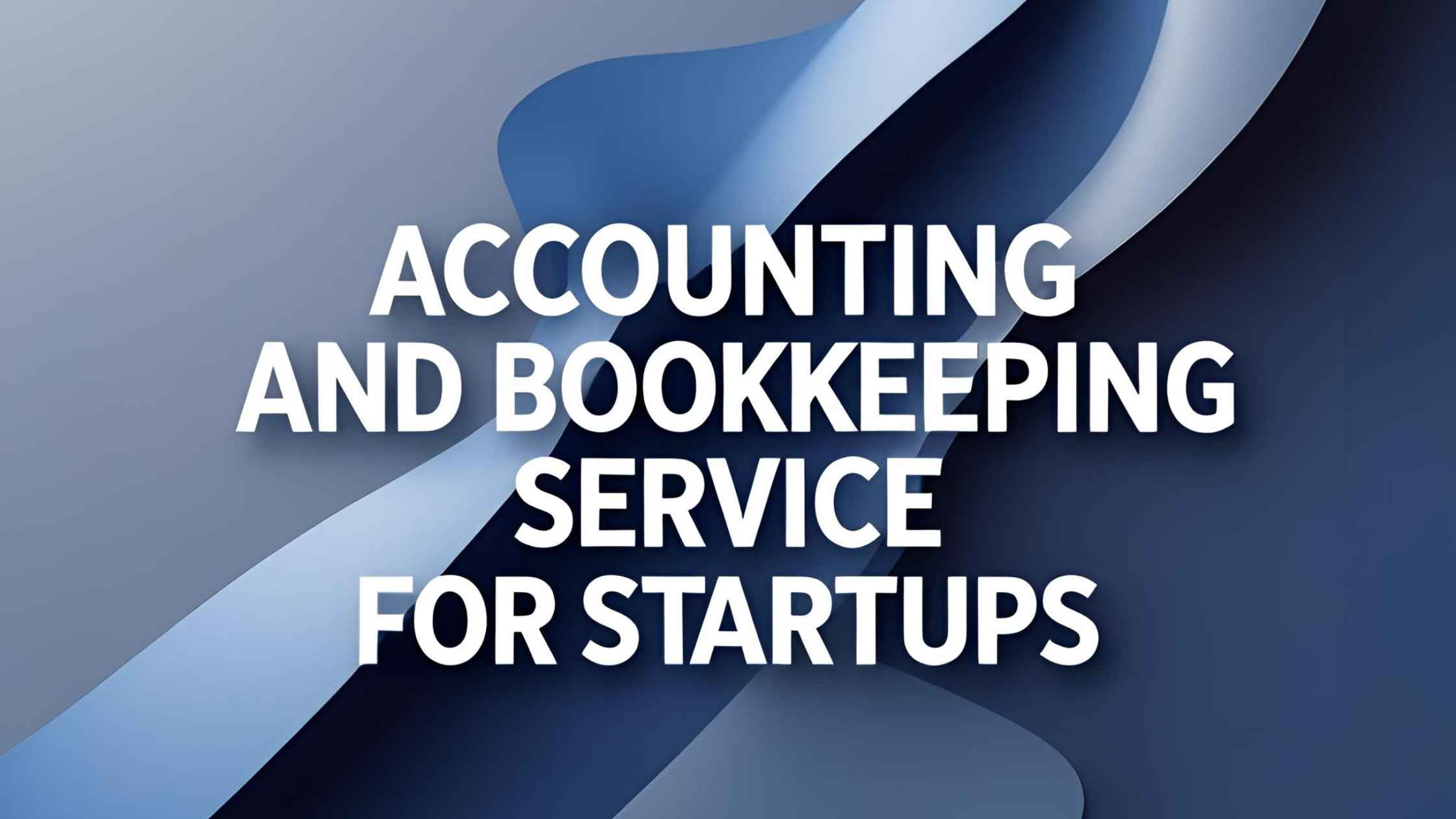Starting a business is exciting, but keeping its money in good shape from the start is even more important. That is why a solid accounting and bookkeeping service for startups quickly becomes a must-have. Initially, most founders throw themselves into product development, marketing efforts, and plans to scale. Yet letting finances slide can invite cash shortages, rule-breaking fines, or worse, a shuttered company.
Whether it means logging daily receipts, getting paperwork ready for tax time, or keeping investors calm, good books act as the bedrock that lets a business grow. This guide shares why young companies need those services, how to put them in place, and why handing the work to outside pros could save you time and money.
Why Bookkeeping Is Critical for Startups
Bookkeeping is not just note-taking; it is the lens that gives your money story real clarity. New ventures, especially, need that clear view to track burn rate, tap into runway, and map out costs. Solid books show where income comes from, keep payroll on schedule, and smooth out cash-flow bumps.
With a trusted accounting and bookkeeping team on your side, you dodge expensive slip-ups like overdraft fees, lost invoices, or late tax penalties. You also stay audit-ready and can hand over neat, trustworthy records to investors and lenders whenever they ask.
The Importance of Accounting for a Growing Startup
Every day, a startup logs purchases, sales, and receipts. While that bookkeeping keeps the numbers in line, accounting turns them into a forward-looking story. As a company grows, clear accounting lets founders shape budgets, predict income, and gear up for the next round of funding.
Start-up accounting usually means crafting simple profit-and-loss reports, balance sheets, and cash-flow snapshots. These documents feed legal rules and fuel big-picture plans. Adding a team that handles both bookkeeping and accounting keeps files tidy and gives advice that fuels steady growth.
Accounting vs. Bookkeeping for Startups: What Is the Difference?
People often mix up the terms, but each job has its beat:
- Bookkeeping is the steady drum of logging every sale, expense, and receipt.
- Accounting is the spotlight that reviews, explains, and summarizes those numbers for action.
Smart founders need both. Bookkeeping builds a clear record, and accounting turns that record into practical advice. The best service combines the two or links them so that financial management feels smooth.
Why Accuracy in Startup Bookkeeping and Accounting Matters
Mistakes in the books may lead to bad choices, late tax fines, or a drop in investor trust. For a startup running on slim margins, one tiny error can cost hundreds, maybe thousands, of dollars. Keeping books correct and reviewing them often protects profit, keeps regulators happy, and lets a team move ahead with confidence.
Mistakes in your financial records can sink a funding round or leave you paying the wrong amount in taxes. Hiring a solid accounting and bookkeeping team for startups cuts those risks and gives you clear, compliant numbers to work from. Remember, accuracy is not a nice-to-have; it is flat-out required.
What to Look for in an Accounting and Bookkeeping Service for Startups
Picking the right financial partner matters. Here is a quick checklist for choosing an accounting and bookkeeping service built for startups:
- Industry experience: They should know SaaS, eCommerce, tech, or whatever field you are in.
- Cloud-based tools: Look for work done in QuickBooks, Xero, FreshBooks, or similar apps.
- Real-time reporting: You want dashboards that refresh with every sale and bill.
- Tax compliance: Let them guide you on federal, state, and local requirements.
- Scalability: Their package should stretch as your headcount and revenue grow.
- Expert support: Access to CPAs, CFOs, or tax pros when a tough question arises.
The right partner will do more than enter data; they will act like an extra set of eyes and hands on your team.
Types of Bookkeeping and Accounting Methods Used for Startups
Most startups stick with one of two core methods:
- Cash accounting records income and expenses only when cash moves.
- Accrual accounting logs income and expenses the moment they are earned or incurred, even if payment has not shown up yet.
Accounting help comes in different packages:
- Basic Bookkeeping: Record expenses, send invoices, and match bank feeds.
- Full-Service Accounting: Run trend reports, predict cash flow, and craft a budget.
Pick the level of help your startup needs based on where you are and where you plan to go.
Set Up Your Startup’s Accounting System Step by Step
Ready to lock your money processes into place? Follow this quick roadmap:
- Open a business bank account and keep personal spending out of it.
- Pick your reporting style: cash-basis or accrual.
- Grab friendly software (QuickBooks Online or Wave).
- Build a chart of accounts.
- Log each sale and purchase with automation.
- Reconcile bank statements monthly.
- Pull financial reports regularly.
- Consult a professional if needed.
Nail these steps now, and your books won’t turn into a late-night headache later.
Choose the Right Method to Keep Your Startup on Track
Most founders start with cash accounting because it’s easy and lets you see real money in the bank. Once orders stack up, you hold stock, or investors join the ride, switch to accrual, so nothing important slips through the cracks.
A solid accounting and bookkeeping team for new businesses will tell you the right moment to upgrade your systems and keep you in step with GAAP rules or IRS expectations.
Financial Records Every Startup Should Keep
Clear, complete records are the backbone of any startup. You should file:
- Income statements (P&L)
- Balance sheets
- Cash flow statements
- Payroll records
- Tax filings
- Receipts and invoices
- Loan documents
- Equity and cap tables
An experienced accounting and bookkeeping partner will track all these items and store them safely in the cloud.
What Does a Bookkeeper Do for Startups?
Inside a startup, a bookkeeper’s to-do list usually includes:
- Recording daily financial transactions
- Managing accounts payable and receivable
- Reconciling bank and credit card statements
- Generating financial statements
- Assisting with payroll
These tasks set the stage for accountants to analyze the numbers. Hire a trusted service, and you’ll get every receipt logged on time and in order.
Bookkeeper vs. Accountant: Startup Roles Explained
In simple terms:
-
Bookkeepers handle the daily data entry and record upkeep.
-
Accountants take that raw data and:
-
Prepare tax returns
-
Offer financial analysis
-
Advice on budgeting and forecasting
-
Both roles matter. A full-service accounting-plus-bookkeeping package for new businesses gives you accurate numbers and smart advice all in one place.
How to Start Using a Professional Service
Follow these steps to bring in outside help:
- Research firms that specialize in startup finance.
- Book a chat to explore their process and fees.
- Check case studies or ask for references.
- Make sure their software integrates with yours.
- Set clear rules for communication and deadlines.
- Sign a contract defining roles and timelines.
Outsourcing lets you focus on building your business while staying compliant and clear. Outsourcing lets you focus on building your business while staying compliant and clear, especially when partners like Visory help simplify tasks such as managing accounts receivable.
Key Factors When Outsourcing
As you shop around, think about:
- Experience with early-stage and fast-growing companies
- Fixed or flexible pricing
- On-call advisory support
- Secure data handling
- Scalability
A trusted service doesn’t just balance the books today—it readies you for audits, funding rounds, and expansion.
How EasyFiling Gives Startups Smart Bookkeeping and Accounting
EasyFiling delivers hands-on bookkeeping and accounting for new businesses that need clear numbers and steady support as they grow. The service mixes helpful software with real experts, so clients get:
- Pinpoint correct recording and quick bank reconciliations
- Up-to-the-minute dashboards
- Complete tax prep and on-time filing
- Integrated payroll
- CFO-level insights
- Industry-specific compliance
By freeing founders to chase customers instead of chasing receipts, EasyFiling becomes the trustworthy, long-term partner startups lean on for solid finances and smart strategy.
How EasyFiling Makes Accounting and Bookkeeping Simple for Startups
When it comes to choosing the right accounting and bookkeeping service for startups, EasyFiling stands out as a seamless, all-in-one solution. Built specifically for new businesses, EasyFiling bundles both accounting and bookkeeping tasks into one streamlined platform, ensuring your financial operations run smoothly from day one.
Whether you’re logging lunch receipts or preparing books for a major investor pitch, EasyFiling ensures your numbers stay accurate, organized, and ready to share.
Here’s how EasyFiling supports both services from a single dashboard:
Bookkeeping Made Easy
EasyFiling efficiently:
- Log sales and daily transactions
- Tracks invoices
- Balances your bank feeds
Every cent that comes in or goes out is correctly labeled and stored, significantly reducing errors and saving you countless administrative hours each month.
Accounting That Drives Growth
Once the books are clean, EasyFiling turns that data into insights. The service:
- Prepares detailed cash-flow reports
- Builds realistic budget forecasts
- Offers actionable, plain-language advice
This helps startups grow smarter, stay compliant with tax obligations, and prepare confidently for funding rounds.
Why EasyFiling Is the Right Choice
Opting for a unified accounting and bookkeeping service for startups like EasyFiling means:
- Fewer email chains and file exchanges
- Faster, more reliable financial reports
- One dashboard to monitor your startup’s financial health
With user-friendly cloud tools and professionals who understand startup life, EasyFiling frees founders to focus on what truly matters: building their vision.
FAQs: Accounting and Bookkeeping Service for Startups
Q1: When should a startup hire an accounting and bookkeeping service?
A: From day one. Clean, timely records steer budgets, taxes, and early funding talks.
Q2: Can I do bookkeeping myself as a founder?
A: It’s doable, but small slip-ups can cost big. Time is better spent growing the business.
Q3: What tools should startups use?
A: QuickBooks, Xero, or Wave. Services like Bench and EasyFiling enhance these tools.
Q4: Is it expensive to outsource these services?
A: Not necessarily. Budget-friendly monthly plans are available.
Q5: How often should books be updated?
A: Weekly or monthly. Real-time apps can prompt daily updates.
Conclusion: Build a Strong Financial Foundation with the Right Partner
A startup’s big ideas need clear money maps to steer them. By teaming up with a solid accounting and bookkeeping partner, you know where each dollar goes, every tax deadline is covered, and the numbers guide your next move.
Whether you’re scraping by or in full-on growth, handing off the books melts stress, lifts focus, and puts seasoned eyes on your cash flow. Pick the right crew, watch your plans expand, and grow with confidence.
File Your LLC Today
25$ off with a coupon
Lock in EasyFiling's transparent rates and get lifetime compliance support at no extra cost.
Get Started Now








